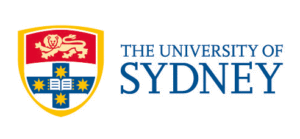
Australia has christened this the Asian Century and Australians are very much aware of the region’s enormous economic power, but this Asian economic juggernaut does not necessary loom quite as large when viewed from other parts of the world, particularly Europe. Nonetheless students need to understand Asia to build a successful international career.
Playing to Australia’s strengths, the University of Sydney Business School held a week-long block seminar focused on “doing business in Asia” for 80 students drawn from around the world.
“This seminar highlighted the unique learning opportunities and challenges of doing business in Asia,” said Associate Professor Philip Seltsikas, the Business School’s Associate Dean (Graduate Management). “We provided students with something unique by drawing on our connections with firms that are very strong in the Asian region. As a result of this seminar, many of the students are now seriously considering careers in the Asia Pacific region.”
The seminar exercises exposed the students from some 29 countries, many of them European, to the rigors of the Asian business environment for the first time. “We had to think of a product that could be introduced into a Chinese or Indian market,” said Antonius Auburger from the Vienna University of Economics and Business. “We had to think of how we would market it and we had to do this in multicultural groups.”
Hans Hendrischke
Professor Chinese Business and Management, University of Sydney Business School
Asia is the region with the most dynamic economies and the strongest growth prospects. As hundreds of millions of people in countries like China and India are becoming middle class consumers, they are catching up with Europe and the United States in purchasing power and sophistication of demand. Equally important is the control of Asian countries on global supply chains. Our dependence on Asia is rapidly increasing.
There are no general rules for doing business in Asian countries, as they are all very different in their cultures and institutions. That said, many Asian countries don’t have an elaborate legal culture like in Australia or other countries with similar structures like the UK and US. Instead, they have a longer tradition of relying on personal trust and a deep respect for hierarchy. The most general points is to value human relations. Any western company entering Asian markets is well advised to establish personal contacts up to the CEO and Board level. This will take time and patience.
The most misleading myth is that people in Asian countries have to learn from us (the Western world) how to do business. Working with Asian partners is a joint learning process. The key to success is to take business partners seriously and to understand them on their own terms. A corporate culture that creates space for personal relations that develop over time is what works best in Asia.
Alicia Fanny Olivia Bergere
CEMS MIM Student
(French student who attended block seminar)
Having studied in Singapore for six months, I had already been exposed to the Asia Pacific region and its challenges. Nevertheless, I learned a lot from the speakers’ personal experiences and knowledge across different fields and industries.
I particularly enjoyed the discussion around Marketing in Asia, which involved panelists from different regions in Asia Pacific and different industries. Andrew Hordern’s presentation on the Chinese economy was also especially interesting. As IMA Asia’s Regional Economist, he drew upon his personal experience to provide us with practical insights and brought the topic to life. Moreover the seminar was held at the very beginning of the semester, which was a great opportunity for students to start building lasting friendships.
This block seminar strengthened my vision of Asia Pacific as a dynamic region presenting a lot of interesting challenges and as such, I would definitely consider starting my International career in Asia after the CEMS Program.
“There is no question that Asia is and will continue to be one of the most significant global markets,” added Mark Newman, CEO & Managing Director, Oroton Group. “What we have been able to talk to the students about will hopefully hold them in good stead for the future.”
“We have only just realised the opportunities available in this region,” said Yixuan Chen from the University of Sydney Business School. “It really is a region that you want to be in if you want to build a successful career.”
